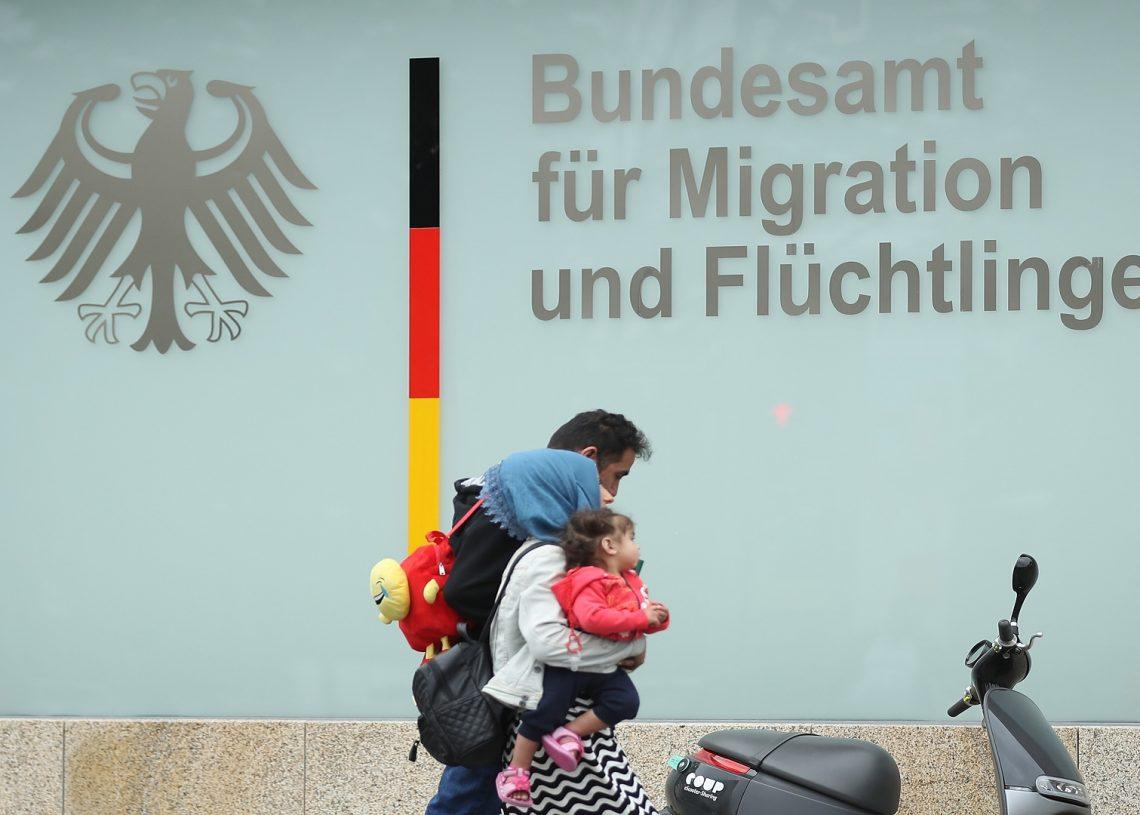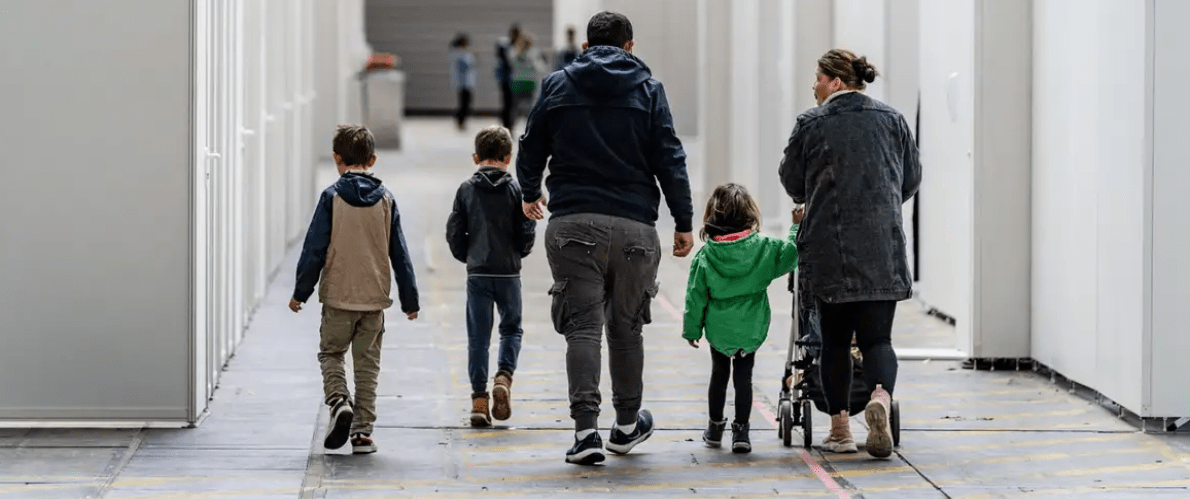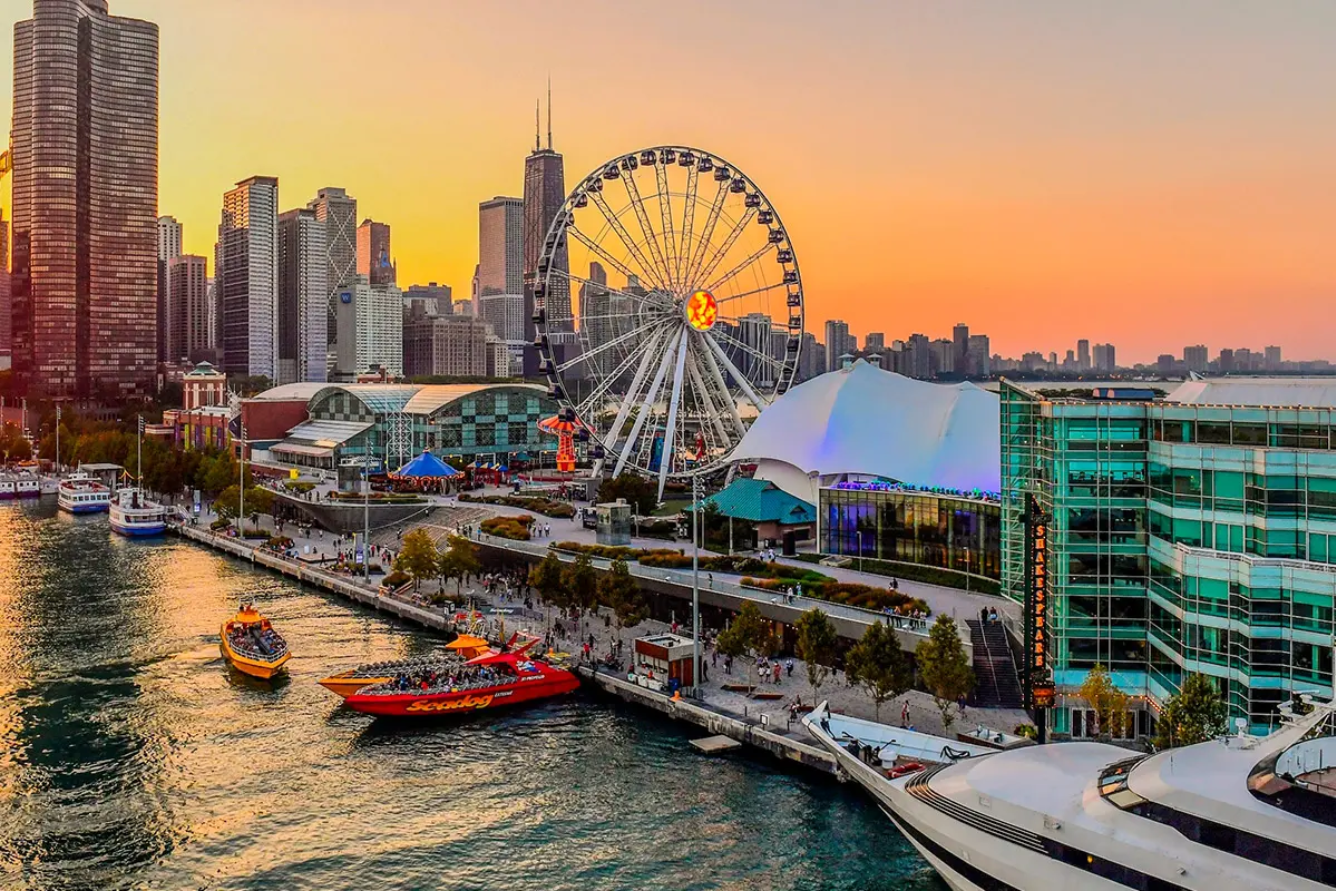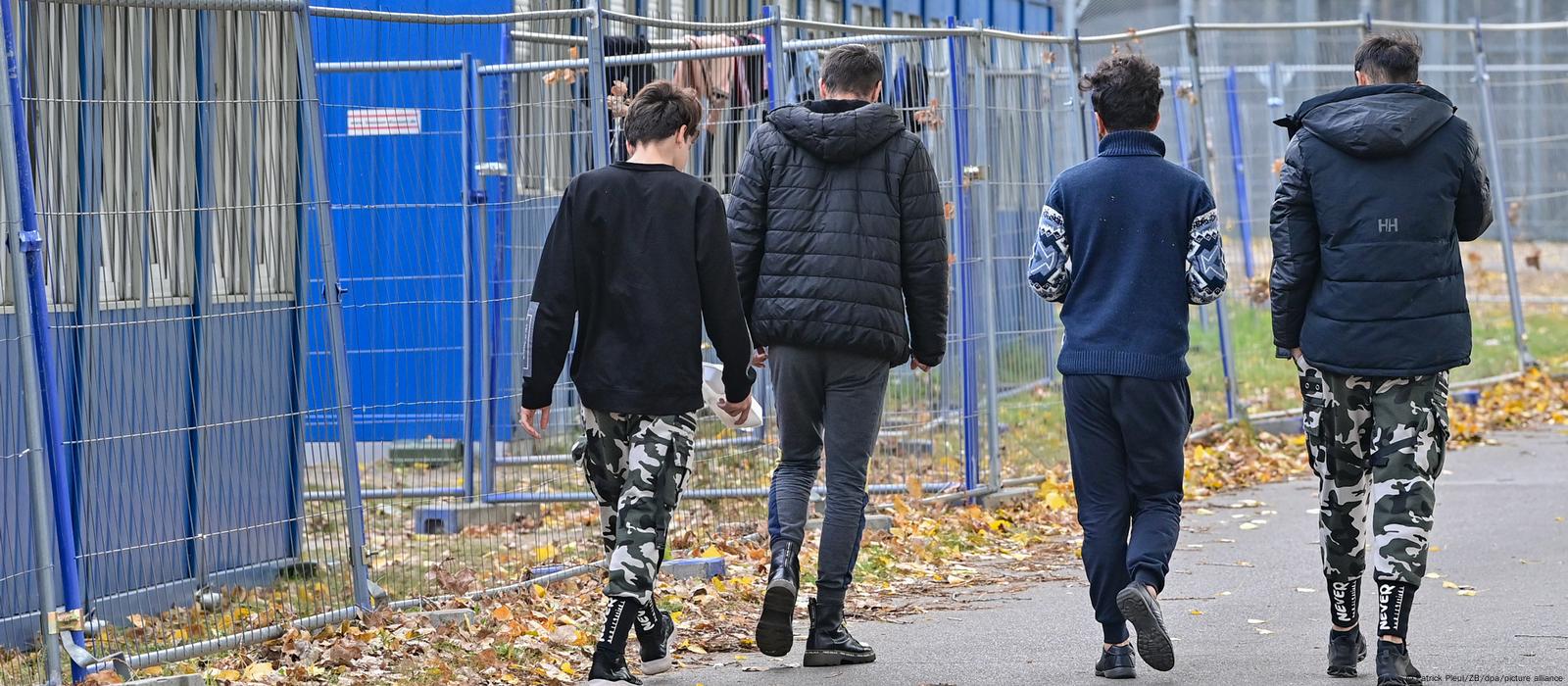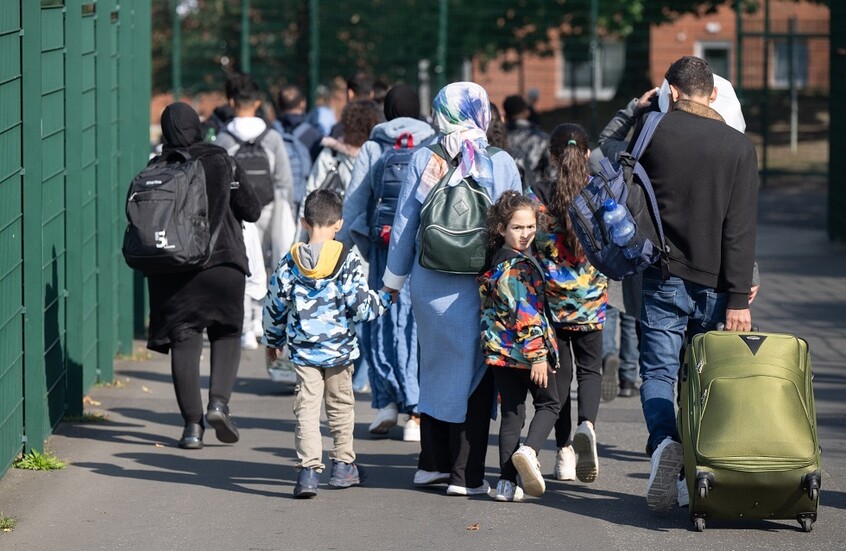
A government source announced that the “sponsorship” program, which was launched ten years ago, allowed 1,883 Syrians to enter Brandenburg Province to reunite them with their families, from the beginning of this year until the end of last September, is going to come to an end, while State Commissioner for Integration Doris Lemmermeier criticized a government plan to stop the program at the beginning of the new year.
The Ministry of the Interior in Potsdam explained in its response to questions from state parliament member Andrea Johlige (left) that the program enables Syrian refugees whose relatives live in Brandenburg to obtain a residence permit, but the basic condition is that the relatives commit to providing their living expenses for a period of five years.
Health costs are covered only for those who are accepted by the state and are allowed to work upon their arrival.
However, Interior Minister Michael Stübgen of the Christian Democratic Party, who has hard-line stances on immigration, pledged to end this program at the end of this year.
For her part, Integration Commissioner Lemmermeier strongly criticized the planned cessation of the programme, speaking of a unilateral decision, calling for the program to be extended for another year.
The number of asylum seekers in Germany reached a new record in 2022, with about (1.14) million new asylum seekers in 2022. Most of these came from Ukraine, according to statistics on March 30, 2023. Of the (1.14) million new asylum seekers who were registered In 2023, 1.01 million of them came from Ukraine.
In addition to these, there were in Germany by the end of 2022 about (2.1) million refugees registered with “BAMF”, in the forefront came Syrian refugees (674 thousand), followed by Afghans (286) thousand, followed by the Iraqis (211) thousand and the Turks (101) thousand.
The demands of the Christian Democratic Party (CDU) on August 22, 2023, to “impose stricter restrictions on immigration to Germany, and that this must happen on the external borders of the European Union,” were met with criticism in the German ruling coalition.
There were voices in the ruling coalition, which includes the Social Democratic Party (SPD), that isolation at the local level and unregulated conditions at the external borders of the European Union are not an alternative.

